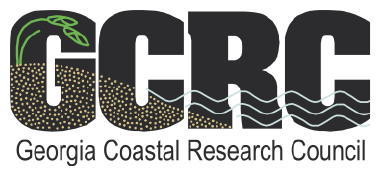Coastal Resilience Specialist; MA Office of Energy and Environmental Affairs
The Coastal Resilience Specialist will provide administrative, programmatic and technical support for CZM efforts to develop and implement strategies that protect coastal resources, properties, and public facilities from erosion, flooding, and sea level rise. The position serves under the direction of the Chief Coastal Resilience Officer on a multi-disciplinary team to assist with implementation of the ResilientCoasts Initiative, including planning, management, data development, and outreach.
Responsibilities include but are not limited to:
- Provide administrative support to the ResilientCoasts Initiative.
- Support implementation of ResilentCoasts Phase I plan and ongoing development of the ResilientCoasts Initiative.
- Conduct literature review and research on coastal resilience topics.
- Assist with GIS data analysis and visuals, including ArcGIS StoryMaps.
- Gather new information, reports, and recommendations on coastal resilience.
- Contribute to content development for presentations, case studies, fact sheets, and CZM’s website.
- Deliver presentations at public meetings and workshops.
- Assist with facilitation of stakeholder convenings and committees.
- Participate in inter-agency teams to coordinate coastal resilience efforts.
- Support the broader CZM and EEA team.
- Cooperate with CZM staff, management, and other agencies on joint projects, willing to accept appropriate share of workload.
- Comply with established policies, accept changes, and work to ensure that both the letter and the spirit of requirements area carried out.
- Manage time effectively, keep supervisors informed, and support policies and practices of CZM/EEA.
Preferred Qualifications:
- Knowledge of:
- Principles and practices of urban and regional planning in coastal environments.
- Terminology and standard abbreviations used in urban and regional planning.
- Social, economic, technological, and ecological factors, trends, and problems involved in urban and regional planning in coastal environments.
- Methods of general report writing.
- Methods used in the preparation of charts, graphs, and tables.
- Principles and practices of community organization.
- Coastal zone management principles, particularly coastal hazards policy and management.
- Coastal and climate adaptation and resilience principles.
- Types, concepts, techniques, and applications of coastal vulnerability assessments.
- Nature-based approaches to shoreline management.
- Ability to:
- Analyze and determine the applicability of planning data, to draw conclusions, and to make appropriate recommendations.
- Read and interpret such documents as regional plans, urban plans, contracts, etc.
- Understand, apply, and explain the laws, rules, regulations, policies, procedures, specifications, standards, and guidelines governing assigned unit activities.
- Prepare general reports and memos.
- Write concisely to express thoughts clearly and to develop ideas in logical sequence.
- Maintain accurate records.
- Prepare and use charts, graphs, and tables.
- Follow written and oral instructions.
- Communicate effectively in oral expression.
- Deal tactfully with others and establish rapport with persons from different ethnic, cultural and/or economic backgrounds.
- Establish and maintain harmonious working relationships with others.
- Work independently.
- Exercise sound judgement.
- Exercise discretion in handling confidential information.
- Analyze and evaluate environmental data for the purposes of developing and implementing climate adaptation strategies.
- Map and analyze geospatial data in ESRI ArcGIS Software (ArcGIS Pro) and the ESRI suite of online tools (e.g., ArcGIS Online, Survey123, Field Maps).
- Translate science and conduct effective community outreach.
- Organize digital files and manage a wide range of projects and tasks with varying deadlines.
Qualifications
First consideration will be given to those applicants that apply within the first 14 days.
Minimum Requirements:
Applicants must have at least (A) four years of full-time, or equivalent part-time, technical or professional experience in the field of environmental science, biology, chemistry, earth science, environmental health, meteorology, natural science, toxicology or public health, of which (B) at least two years must have been in a professional capacity, or (C) any equivalent combination of the required experience and the substitutions below.
Substitutions:
I. An Associate’s degree with a major in the field of environmental science, biology, chemistry, earth science, environmental health, meteorology,. natural science, toxicology or public health may be substituted for a maximum of one year of the required (A) experience.*
II. A Bachelor’s degree with a major in the field of environmental science, biology, chemistry, earth science, environmental health, meteorology, natural science, toxicology or public health may be substituted for a maximum of two years of the required (A) experience.*
III. A Graduate degree with a major in the field of environmental science, biology, chemistry, earth science, environmental health, meteorology, natural science, toxicology or public health may be substituted for a maximum of three years of the required (A) experience and one year of the required (B) experience.*
*Education toward such a degree will be prorated on the basis of the proportion of the requirements actually completed.
NOTE: Educational substitutions will only be permitted for a maximum of one year of the required (B) experience.
Potentially Eligible for a Hybrid Work Schedule: Yes
